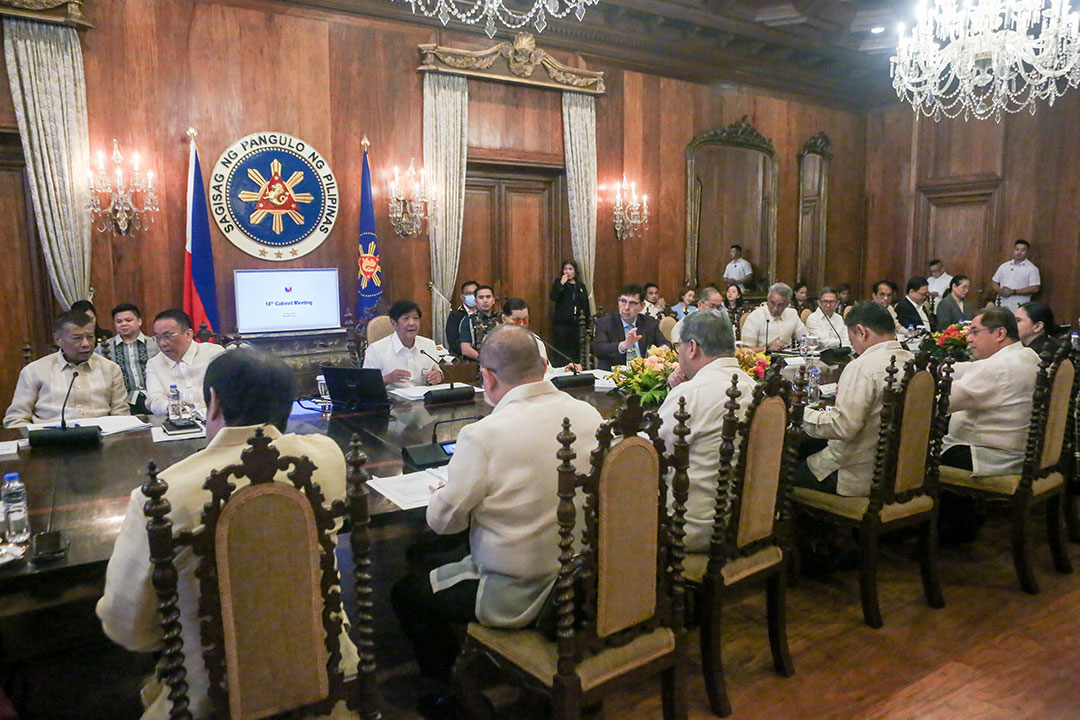
Thinking Beyond Politics
By Victor Andres C. Manhit

We perfectly appreciate the rationale for President Ferdinand “Bongbong” Marcos, Jr.’s call for his Cabinet secretaries and other officials to hand in their courtesy resignations after the midterm elections last May 12.
It is, after all, the President’s prerogative to choose who will be his alter ego. These are positions of confidence, and those occupying these key posts are presumed to enjoy the full trust and confidence of the appointing power, not only for their credentials and expertise, but their actual experience on the job.
Thus far, President Marcos Jr. has retained several key officials and replaced or transferred some. These are critical decisions that will affect the next three years of his term, and even beyond that if we are talking about long-term reforms that must be put in place in key sectors.
One such sector is education.
It is widely acknowledged that the Philippine education system has numerous complex challenges that need to be addressed over the short, medium, and long term. The first and second Congressional Commission on Education (EDCOM) reports give a sense of the daunting problems at all levels of education — in fact beginning at the very early stages of a learner’s life — hindering the realization of our youth’s full potential.
Compared to other countries, and despite the constitutional provision that mandates that education get the highest budgetary priority, the Philippines has been spending less per student compared to other countries. According to the Philippine Institute for Development Studies (PIDS), per-student spending in the Philippines has seen a decline, from P22,979 in 2017 to P19,943 in 2021, ranking among the lowest globally.
Comparatively, the Philippines spends only about 60% and 72% of Indonesia’s per student public spending for primary and secondary levels, respectively. This is despite the fact that the Philippines’ per capita income is 84% of Indonesia’s. When using Purchasing Power Parity (PPP$) — defined by the World Bank as being a method used to compare the purchasing power of different currencies — Singapore spends PPP$16,704 and PPP$20,632 per primary- and secondary-level student, respectively. The Philippines, on the other hand, spends PPP$813 per primary level student and PPP$777 per secondary student.
As in many other sectors, the partnership of the public and private sector would do much to strengthen education. This will help resolve many issues in education, such as classroom congestion. Through these partnerships, schools can be equipped with and maximize digital learning tools, collaborate with industry partners, and improve access to quality education.
From the legislative front, a concrete example would be the proposed expansion of the voucher program of the Department of Education (DepEd) to assist private schools, as filed in the Senate. Currently, the voucher program only includes Senior High School, and the proposal aims to expand this to Kindergarten to Grade 6. Indeed, steps toward greater complementarity between public and private schools are already being undertaken in the current administration.
But it is in the Executive Department, under the leadership of Education Secretary Juan Edgardo Angara, and also TESDA (Technical Education and Skills Development Authority) Director General Francisco Benitez, that the government needs continuity most of all.
In recent days, private school groups have expressed support for the two Cabinet secretaries: the Coordinating Council of Private Educational Associations, the Catholic Educational Association of the Philippines, the Philippine Association of Colleges and Universities, the Unified TVET of the Philippines, Inc., and the Private Education Assistance Committee.
The support is well founded. Mr. Angara’s policy direction aligns with urgent priorities: improving teacher support, efficient use of resources, and revamping outdated systems. As a former legislator and commissioner of the 2nd EDCOM, Angara brings policy depth and political advantage — both critical to push through long-overdue changes in DepEd. He has pushed for equity in subsidies, focusing on outcomes and institutionalizing transparency.
Meanwhile, Mr. Benitez has been laying the foundation for 21st century workforce readiness — with strategies rooted in inclusivity, industry relevance, and lifelong learning.
He is pushing for the modernization of the TVET (technical and vocational education and training) system, moving away from short-term programs toward sustainable career pathways. He has improved TESDA’s alignment with industry needs, a crucial move as the country faces a skills mismatch and high youth unemployment.
These two officials deserve to be given the opportunity to continue the good work they have been doing at their respective agencies. Both leaders represent a shift toward evidence-based, inclusive, and accountable governance in education. Their retention would not only benefit students and teachers but would also send a strong message that performance matters more than politics.
The stakes are high in education: it involves our youth, our future, our economic progress, and the preservation of democracy. The effects of education initiatives are not immediate — they take a while to manifest in the quality of our students’ performance, not just in aptitude tests but in how they navigate the challenges of a tech-driven world and how they are able to ensure a good quality of life for themselves and their families.
We thus echo the call to retain Secretaries Angara and Benitez in their respective posts. Keeping them would ensure momentum and continuity in what they have begun. It would ensure that the pockets of change that we are beginning to see would ripen into substantial and sustained transformation of the education sector for our students and teachers, and for our nation.
Victor Andres “Dindo” C. Manhit is the president of the Stratbase ADR Institute.